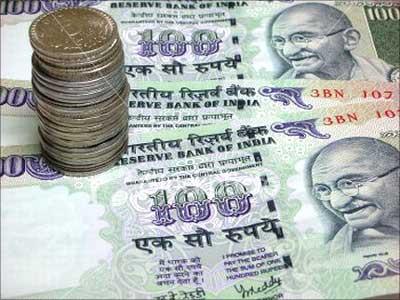 | « Back to article | Print this article |
Spend more to beat slowdown, experts to govt
It has become another of those points where many economists differ with the government. Recently, Finance Minister Pranab Mukherjee had cautioned against "overdoing ourselves" in its bid to rein in fiscal deficit at 4.6 per cent of the GDP this financial year, saying it would choke growth.
Now, experts say strains on fiscal deficit are coming from the revenue side and the administration should, if anything, step up expenditure to prop up the economy that is slowing down.
Fiscal deficit has touched 74.4 per cent of the budget estimate for the current year in the first seven months, and much of the shortfall is coming from revenue side rather than expenditure.
Click NEXT to read more...
Spend more to beat slowdown, experts to govt
Statistics show that the Centre's net tax revenues were up 7.29 per cent till October this fiscal, against 27.02 per cent in the corresponding period of the last fiscal. In fact, the corporate tax rose just 2.8 per cent against 20.98 per cent last year, clearly showing signs of a slowdown in the economy.
The Indian economy slowed to over a two-year low of 6.9 per cent in the second quarter of this fiscal. Also excise duty was up only by 9.7 per cent till October this fiscal, when it was 38.99 per cent in the comparable period of the last fiscal.
However going forward, non-plan expenditure will rise on increased subsidy burden in oil and fertilisers, as the government has sought around Rs 56,000 crore (Rs 560 billion) through second supplementary demand for grants.
Click NEXT to read more...
Spend more to beat slowdown, experts to govt
Deloitte, Haskins & Sells notices that the biggest difference with the last fiscal is a marginal dip in the tax revenue. In the initial months, it was direct tax, then it was indirect tax, points out Anis Chakravarty, the director of the accountancy firm.
"The government does not have any plans firmed up to raise revenues," he notes. "They have risen just over Rs 1,100 crore (Rs 11 billion) from divestment, as against the target of Rs 40,000 crore (Rs 400 billion)."
Besides, the government had that time got a windfall of over one lakh-crore from the sale of spectrum for high-speed mobile and broadband services. This will not be coming this fiscal.
Click NEXT to read more...
Spend more to beat slowdown, experts to govt
Chakravarty suggests the government must rather spend on infrastructure more and give approvals to projects that will have a multiplier impact on the economic growth.
Finance minister Pranab Mukherjee had said last month that the government had to be careful not to over-do itself in reaching this target. Reason: it "can have an excessive slowing down impact on growth", he told Parliament.
Madan Sabnavis, CARE Ratings chief economist, disagrees. He advises against curtailment of expenditure at this point of time. "An overall slowdown in the economy is prompting the the private sector not spend freely," he notes.
"So, the only entity that can do investment is the government, as it is able to borrow at around 8 per cent."
Click NEXT to read more...
Spend more to beat slowdown, experts to govt
That being the situation, the government needs to follow the Keynesian theory lest the economy stagnates, he cautions. The celebrated economic theory, cited much at the time of Great Depression of the 1930s and propounded by British economist John Maynard Keynes, proposes that the government should formulate policies that would increase aggregate demand and trigger economic activity, thus reduce unemployment and deflation.
Sabnavis says though non-plan expenditure is going out of the way, government should not be harsh, considering the social aspect of it.
Concurs Arun Singh, senior economist, Dun and Bradstreet: "If the government cuts on non-plan expenditure, for example subsidy on oil, it will lead to inflation."





